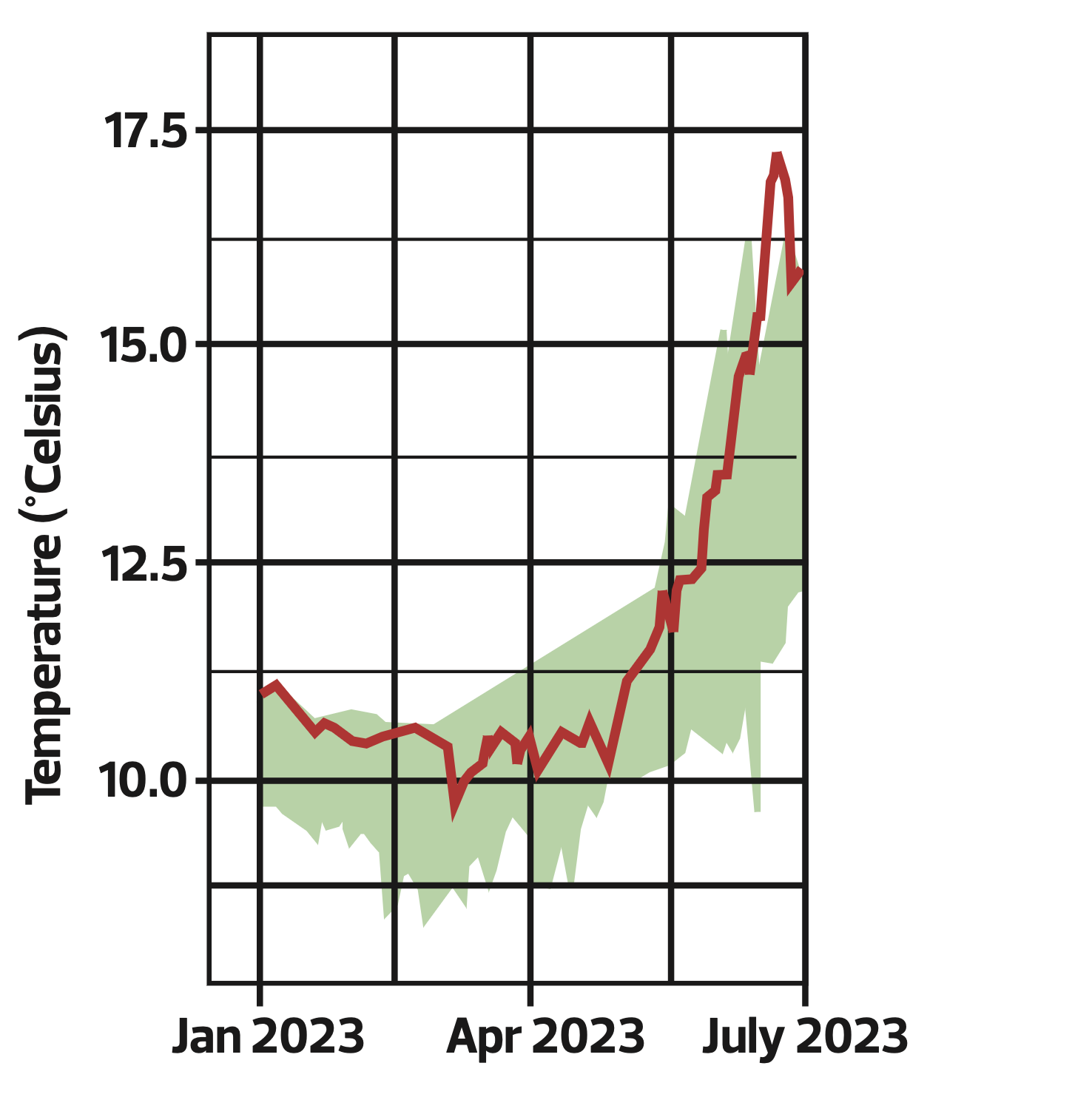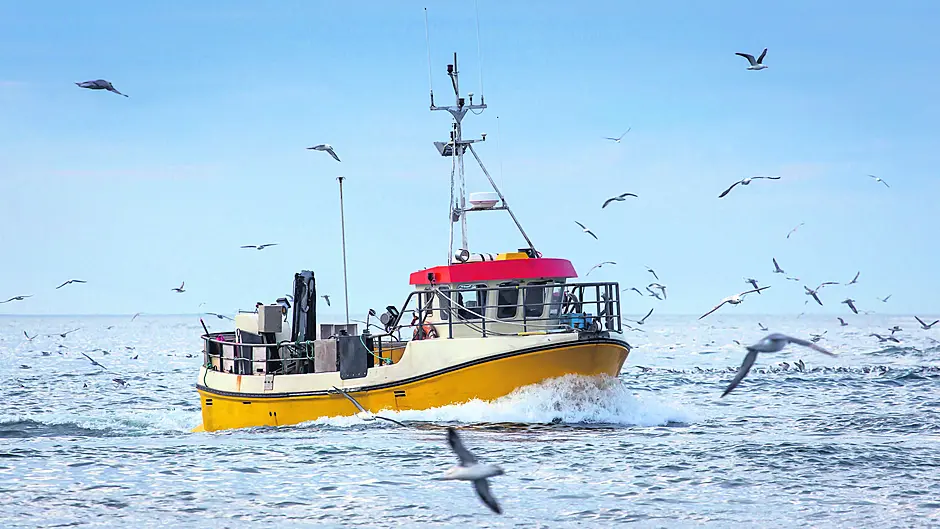Temperatures on waters off Ireland’s south-west coast reached 17 degrees in recent weeks. A long-term rise in temperatures would have serious effects for fisheries. Tommy Moyles reports
A WEST Cork oceanographer has warned that fish species in the waters off the Irish coast could be affected if marine heatwaves become a more common occurrence.
While marine heatwaves are not uncommon around Ireland in recent years, they usually occur in late August and September when ocean temperatures approach their annual peak.
In June, temperatures in the waters off Ireland’s south-west coast reached up to 17C.
According to Dr Gerard McCarthy, a potential consequence of climate Research and Analysis Unit) in the Department of Geography at Maynooth Universityore frequent marine heatwaves in Irish waters could result in less cold-water fish species we’re used to.
‘The likes of cod, haddock and herring could be replaced by more bottom dwelling species such as prawns or sole coming into Irish water instead. This biogeographical shift is something that can happen if we get a prolonged period like this.’
Interestingly John Nolan of the Castletownbere Fisherman’s Cooperative says one fish they have seen coming into Irish waters is anchovies – something very unusual to be found so far north, he says.
Mr Nolan said changes to fish species must be closely monitored.
 Temperatures reached heights of up to 5C above normal for this time of year.
Temperatures reached heights of up to 5C above normal for this time of year.
Clonakilty native, Dr McCarthy working in ICARUS (Irish Cclassed a marine heatwave as when water temperatures rise above the 90th percentile of normal water temperature for a duration of at least five days.
‘This occurred recently in the water’s due west of Ireland, The M4 buoy situated off the north west coast, near Donegal Bay, the temperatures rose by about 4 to 5 degrees warmer than what they should be. This time of year, you’d expect it to be 12C but the ocean buoys placed by the Marine Institute and Met Eireann were recording temperatures of 17C.‘
Citing the example of Great Barrier Reef heatwave in 2015-16 where between 20 and 30% of the corals were lost due to prolonged bleaching due to the rising water temperature, Dr McCarthy said marine heatwaves impact all ecosystems in affected areas.
‘An Irish example could be the range of fisheries in a given location. Take something like salmon, they prefer cold water and come into Irish waters to spawn in cold rivers. Now the heatwave we’ve seen so far, water temperatures are getting up to the level where salmon start getting intolerant.’
Longer term, oceanographers such as Dr McCarthy are keeping an eye on the Gulf Stream.
On the minds of many West Cork people, especially among the farming community, its warm air flows contribute to an earlier grass growing season relative to the rest of the country.
“Like many West Cork people, I grew up thinking the Gulf Stream was lapping on the shorelines keeping our climate mild, but it never gets to the shores of Ireland or gets onto continental shelf. It turns north a good bit to the west of Ireland but what it has done at that stage is, it releases the heat to the atmosphere and that is what gets carried over by the winds to Ireland and north west Europe.
’In terms of climate, that is one of the things we’re quite concerned about. If the Gulf Stream weakened substantially, we could get relatively cooler conditions in the Atlantic Ocean but that is a much longer-term time scale for that to happen.”










